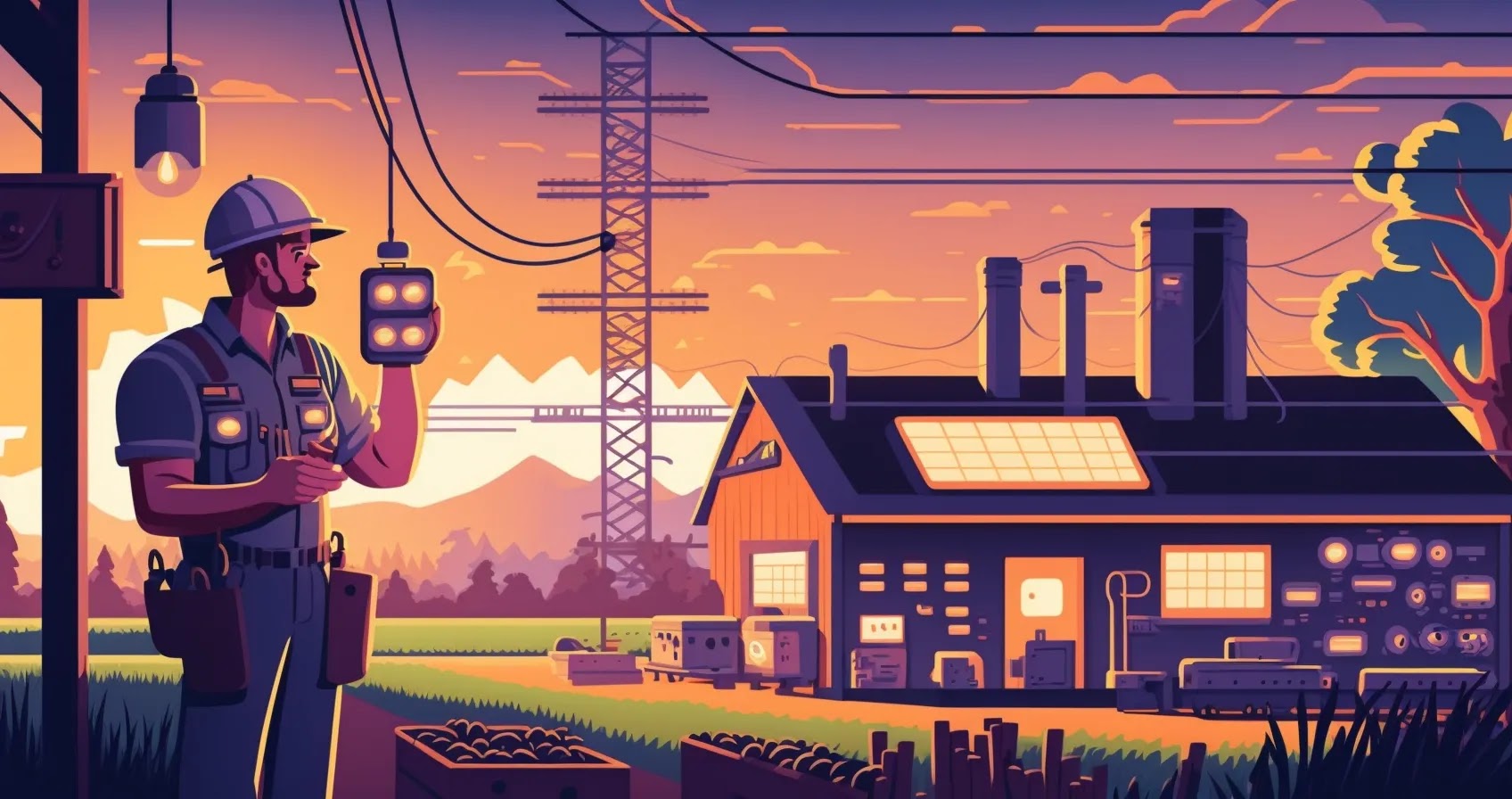Rural Electrification Engineers are responsible for planning, designing, and implementing electrical systems in rural areas that lack access to electricity.
They work to bring power to remote communities, using renewable energy sources and ensuring the systems are safe and sustainable.

Quick Navigation:
Reasons to become a Rural Electrification Engineer
Do you want to make a difference in the lives of people living in remote areas? Do you want to use your engineering skills to help provide electricity to rural communities?
If so, becoming a Rural Electrification Engineer is the perfect career for you. As a Rural Electrification Engineer, you will be responsible for designing, implementing, and maintaining electrical systems in rural areas that are not connected to the main power grids.
You will work with communities to identify their needs and provide them with sustainable and reliable energy solutions.
How to become a Rural Electrification Engineer
To become a Rural Electrification Engineer, you will need to obtain at least a bachelor’s degree in Electrical Engineering or a related field.
You will also need to gain experience in the field of rural electrification. You can do this by working with non-profit organizations that focus on rural development projects, or by pursuing internships with rural electrification companies.
Additionally, obtaining certifications in renewable energy and sustainable development will be beneficial to your career.
Skills for Rural Electrification Engineer
To succeed as a Rural Electrification Engineer, you will need to possess excellent problem-solving skills, strong analytical skills, and excellent communication skills.
You should also have a good understanding of electrical engineering principles and renewable energy technologies. Additionally, you should be able to work well in a team and be willing to travel to remote areas to work on projects.
Career development
As a Rural Electrification Engineer, you can expect to start your career as a Junior Engineer and work your way up to a Senior Engineer or Project Manager.
With experience, you can also move into roles such as Technical Director or Consultant. Additionally, you can pursue advanced degrees in Electrical Engineering or Business Administration to further advance your career.
Requirements of Rural Electrification Engineer
To become a Rural Electrification Engineer, you will need to have a bachelor’s degree in Electrical Engineering or a related field.
You should also have experience in rural electrification, either through internships or working with non-profit organizations. Additionally, you will need to be familiar with renewable energy technologies and have excellent problem-solving skills.
Interview preparation for Rural Electrification Engineer
During the interview for a Rural Electrification Engineer position, you will be asked questions about your experience in rural electrification, your knowledge of renewable energy technologies, and your problem-solving skills.
You should also be prepared to discuss your communication skills and your ability to work in a team.
Work-life balance
As a Rural Electrification Engineer, you may need to travel to remote areas to work on projects. This can be challenging, but the work is fulfilling and rewarding.
Most companies that focus on rural electrification provide their employees with a good work-life balance and offer flexible working arrangements.
A day in the life of a Rural Electrification Engineer
| Time | Activity |
|---|---|
| 8:00 AM | Arrive at the office and check emails |
| 9:00 AM | Attend a meeting with the project team to discuss the progress of a rural electrification project |
| 11:00 AM | Travel to a remote community to conduct a needs assessment for a new project |
| 1:00 PM | Lunch break |
| 2:00 PM | Meet with community leaders to discuss the proposed project and gather feedback |
| 4:00 PM | Return to the office and work on project designs and proposals |
| 6:00 PM | Wrap up work for the day and head home |
FAQs
Q: What kind of projects do Rural Electrification Engineers work on?
Rural Electrification Engineers work on projects that focus on providing electricity to rural communities that are not connected to the main power grids. These projects can include designing and implementing solar power systems, wind turbines, and mini-hydroelectric systems.
Q: What is the employment outlook for Rural Electrification Engineers?
The employment outlook for Rural Electrification Engineers is positive, as there is a growing demand for sustainable and renewable energy solutions in remote areas. With the continued focus on sustainable development, the need for Rural Electrification Engineers is expected to increase.
Q: What skills do I need to become a successful Rural Electrification Engineer?
To become a successful Rural Electrification Engineer, you will need to possess excellent problem-solving skills, strong analytical skills, and excellent communication skills.
You should also have a good understanding of electrical engineering principles and renewable energy technologies. Additionally, you should be able to work well in a team and be willing to travel to remote areas to work on projects.
Wrapping up
Becoming a Rural Electrification Engineer is a rewarding career that allows you to make a difference in the lives of people living in remote areas.
With the right education, experience, and skills, you can become a successful Rural Electrification Engineer and help provide sustainable and reliable energy solutions to communities in need.






